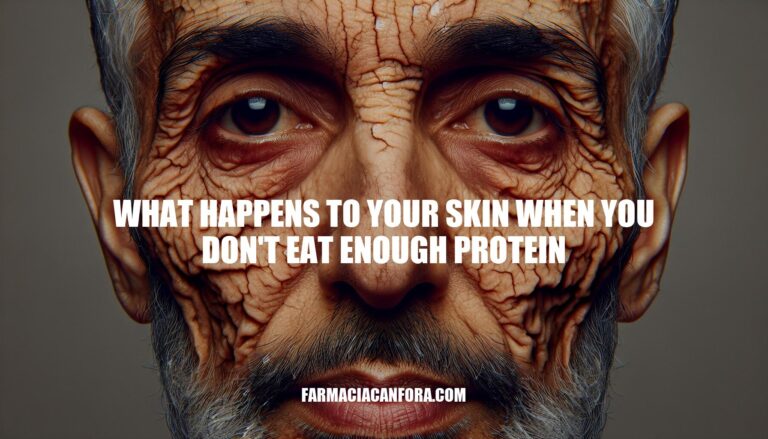


When you don’t consume enough protein, your skin can suffer. Protein deficiency may lead to dry, flaky skin, redness, and even hair loss. Protein is crucial for maintaining healthy skin, as it helps repair tissues and supports the production of collagen, which keeps your skin firm and elastic. Ensuring you get enough protein in your diet is essential for keeping your skin looking its best.
Proteins, such as collagen and elastin, are crucial for maintaining the structure and function of your skinCollagen provides strength and structure, while elastin allows your skin to stretch and return to its original shape.
When you don’t consume enough protein, your skin can suffer. Dryness and loss of elasticity are common issues. This happens because your body lacks the necessary building blocks to maintain and repair skin cells. As a result, your skin may become flaky, brittle, and less resilient. You might also notice hair loss and brittle nails due to the deficiency.
Here are the visible signs of protein deficiency in the skin and what happens when you don’t eat enough protein:
Ensuring you get enough protein in your diet is vital for maintaining healthy skin and overall well-being.
Not consuming enough protein over an extended period can have significant effects on your skin health. Here’s what happens:
Dry and Flaky Skin: Protein is essential for the production of collagen, which maintains skin elasticity and hydration. Without enough protein, your skin can become dry, flaky, and prone to premature aging.
Loss of Skin Elasticity: Collagen and elastin, both proteins, are crucial for keeping your skin firm and elastic. A deficiency can lead to sagging and wrinkles.
Skin Lesions and Discoloration: Severe protein deficiency can cause skin lesions, redness, and patches of depigmented skin. This is often seen in conditions like kwashiorkor.
Slow Wound Healing: Protein is vital for cell repair and regeneration. Insufficient protein intake can slow down the healing process of wounds and increase the risk of infections.
Increased Susceptibility to Infections: Protein is crucial for the immune system. A deficiency can weaken your skin’s barrier function, making it more susceptible to infections.
Hair and Nail Problems: Protein deficiency can also affect hair and nails, leading to brittle hair, hair loss, and weak nails.
These chronic conditions highlight the importance of maintaining adequate protein intake for overall skin health. If you have concerns about your diet, it’s always a good idea to consult with a healthcare professional.
When you don’t consume enough protein, your skin can suffer from dryness, flakiness, and loss of elasticity. This is because your body lacks the necessary building blocks to maintain and repair skin cells.
As a result, your skin may become dull, brittle, and less resilient, leading to hair loss and brittle nails. Without enough protein, you may also experience red patches, splitting or cracked skin, slow healing of wounds, and increased susceptibility to damage from environmental factors.
Adequate protein intake is essential for maintaining healthy skin and overall well-being, as it supports the production of collagen and elastin, which keep your skin firm and elastic.